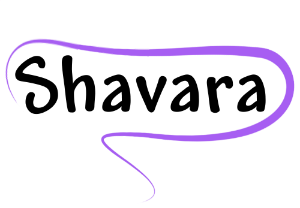The Centers for Medicare & Medicaid Services (CMS) has issued a final rule for 2013 that updates Medicare policies and payment rates for dialysis facilities paid under the End-Stage Renal Disease (ESRD) Prospective Payment System (PPS). CMS estimated a 4.6 percent growth in fee-for-service Medicare dialysis beneficiary enrollment between 2012 and 2013. In August 2012, CMS released an analysis of …
2013 Increased Claims Reimbursement
Due to recent legislative changes, many providers will see increased claims reimbursement in 2013. Below are the details of three areas that will be effected. Increased Medicaid Payments to Primary Care Physicians: The National Quality Strategy, required by The Affordable Care Act of 2010, is a national plan to improve the delivery of health care services, patient health outcomes, …
URGENT: Avoid Incorrect Outpatient Place of Service
Physicians providing services in the outpatient department of a hospital need to urgently review their place of service (POS) coding practices. As of October 1, 2012, CMS has implemented it's new place of service coding instructions per CR7631. Billing for outpatient hospital procedures have come under the scrutiny of the Office of the Inspector General (OIG). The OIG has …
Always Code the Most Specific Diagnosis
Inaccurate or non-specific diagnosis coding can adversely affect your reimbursement of medical claims. Many categories of the ICD-9 contain codes that represent the non-specified site of a certain neoplasm. The are typically indicated with a “9” as the last digit of the code. Even though all of these codes are viable, accepted diagnoses, many payers, especially Medicare, highly encourage the …
Electronic Health Record (EHR) and Medical Billing Systems
An EHR must not only record your patient data electronically, but should be certified for meaningful use by CMS. Once you select a certified system, this gives you the potential to earn financial incentives from CMS by providing the required proof of meaningful use. Integrating multiple systems can enhance your work environment and improve efficiency. Your medical billing system should …
Optimize Use of Electronic Data Interchange In Medical Billing
Electronic data interchange (EDI) is the structured transmission of data between organizations by electronic means. It is used to transfer electronic business data from one computer system to another computer system, i.e. from a medical practice to an insurance payer. . Medical billing software should utilize the following three common EDI functions: submission of Electronic …
PQRI- Streamline Your Process
PQRI is the Physician Quality Reporting Initiative created by the federal government. As with most government programs, especially those offering financial incentives, filing PQRI can be difficult to navigate. You could spend hours combing through the 318 Reporting Measures for 2012 to figure out which ones apply to your medical practice. Then additional hours completing all the questionnaires for …
5 Ways to Improve Medical Claim Reimbursement
Often the handling of accounts receivable is considered distasteful, something that can be ignored or should be handled by somebody else. Too often the calls don’t get made to insurance companies, the appeals don’t go out, or the resolution of denials is put off. Even though it may be difficult to find time to perform these tasks, they are an …
What are EOB Claim Adjustment Group Codes?
A Claim Adjustment Group Code consists of two alpha characters that assign the responsibility of a Claim Adjustment on the insurance Explanation of Benefits. These 5 EOB Claim Adjustment Group Codes are: CO Contractual Obligation CR Corrections and Reversal OA Other Adjustment PI Payer Initiated Reductions PR Patient Responsibility These Group Codes are combined with Claim Adjustment Reason Codes that can …
Claims “Scrubbers” Increase Reimbursement of Medical Claims
Wouldn't you like to avoid denials? Let's look at Claim Scrubbers and how they function to optimize reimbursement of medical claims. The best medical billing software will have a built in scrubber that analyzes the procedure codes on the claim for any conflicts to the NCCI edits. If the scrubber finds no conflicts, then you can proceed with …


